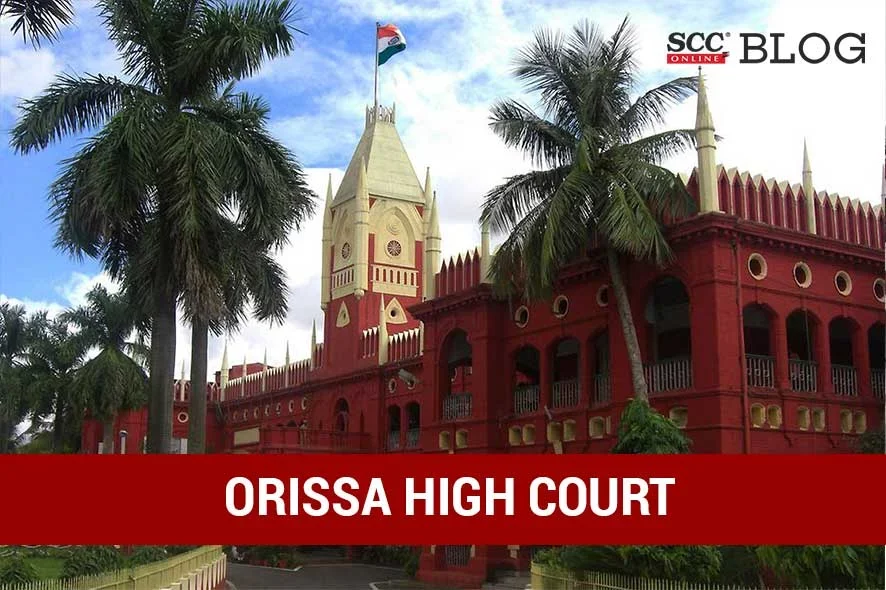Orissa High Court: While hearing a set of two criminal applications made under Section 482 of the Code of Criminal Procedure, 1973, (‘CrPC’) challenging the Orders of the Sub-Divisional Judicial Magistrate (‘S.D.J.M.’), wherein cognizance of the offences under Sections 302, 506, 201, 204 read with Section 120-B and 34 of the Penal Code, 1860 (‘IPC’) was taken, the Single Judge Bench of Sashikanta Mishra* , J., partly allowed the criminal petition and modified the impugned order only to the extent of substitution of the offences under Sections 302, 506, 201, 204 of the IPC by the offences under Sections 306, 120-B and 34 of the IPC.
Factual Matrix
The deceased was working as a Personal Assistant to the then Collector, Malkangiri (‘petitioner/accused’). The deceased went missing on 27-12-2019, while on duty. The dead body of the deceased was recovered from the Satiguda dam site by the fire personnel. In the course of enquiry, inquest was held, and post- mortem disclosed the cause of death as ante-mortem drowning and its complications. It also revealed that the dead body did not have any injury or mark of violence. The viscera report indicated that no poisonous compound, alcohol and drugs was detected.
The wife of the deceased filed a complaint, alleging that on the date of occurrence, her husband had gone to the residence office of the accused at about 07:30 A.M., and stayed there for nearly half an hour and returned back. However, again at about 10 A.M., he went to the residence of the accused and did not return. Thereafter, it was alleged that the accused was responsible for death of the deceased. The S.D.J.M forwarded the complaint to the I.I.C. to register an FIR and conduct investigation as per Section 156(3) of the CrPC. The Investigating Officer submitted the final report and revealed that deceased was upset in his service matters and committed suicide by jumping in the Satiguda Dam.
A protest petition was filed by the wife of the deceased and the S.D.J.M. recorded her statement under Section 200 of the CrPC and took cognizance of the said offences.
Analysis and Decision
Based on the post-mortem report and viscera examination report, the Court said that there was no mention of the cause of death being homicidal in nature. Perusing the complaint petition filed by the complainant, the Court said that there was not a shred of allegation that the petitioner had intentionally caused the death of the deceased. Further, the Court said that the admitted case of the complainant, which was well supported by the medical evidence, that the deceased had died due to drowning. The only allegation made against the accused was that on 04-04-2018 he had called the deceased in the evening to his residence office for some urgent work and after completion, he had asked him a confidential question as to who are people or projects or agencies who contributed money to the Collector either on monthly basis or on work to work basis. The accused also allegedly asked the deceased whether he can take up the responsibility of collecting funds/percentage/commission on behalf of the Collector. When the deceased expressed his lack of information regarding collection of funds and his inability to make such a collection, the accused was upset.
Therefore, the Court said that neither the medical evidence nor the complaint petition, protest petition, initial statement of the complainant, also that of the other witnesses, contain, prima facie, any evidence to even suggest that the death was homicidal in nature. Thus, the Court found that there were no materials to prima facie suggest commission of the offence under Section 302 of the IPC.
However, the Court noted that the complaint petition, protest petition, initial statement of the complainant and the statement of other witnesses as also objection affidavit filed before the Court contained allegations against the accused and two other persons of having instigated, by their conduct, the deceased to commit suicide. The Court also noted that the charge sheet also mentioned that the deceased was upset in his service matters and had committed suicide by jumping in the Satiguda Dam. Further, the Court noted that the investigation did not suggest any plausible reason for the deceased other than being upset because of his service matters to contemplate taking the extreme step.
The Court was of the considered view that the offences punishable under Sections 302, 506, 201, 204 of the IPC were prima facie, not made out. However, the Court said that the Court below had rightly taken cognizance of the offence under Sections 120-B and 34 of the IPC.
Therefore, the Criminal petition was partly allowed, and the impugned order was modified only to the extent of substitution of the offences under Sections 302, 506, 201, 204 of the IPC by the offences under Sections 306, 120-B and 34 of the IPC. The Court directed the Court below to proceed accordingly and to try and dispose of the case as expeditiously as possible, preferably, within the period of eight months.
[Manish Agarwal v. State of Odisha, 2023 SCC OnLine Ori 3390, Decided on 22-06-2023]
*Judgment Authored by: Justice Sashikanta Mishra
Advocates who appeared in this case :
For the Petitioner: Senior Advocate Millan Kanungo, Advocate Yuvraj Parekh;
For the Respondents: Standing Counsel T.K. Praharaj.









